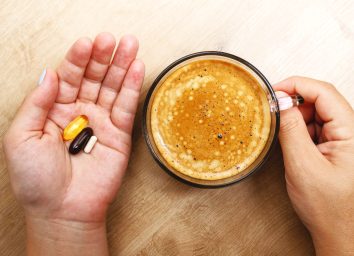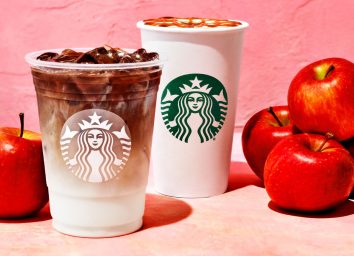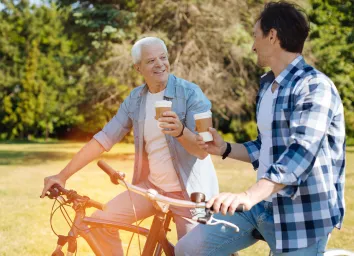One Major Effect of Drinking Coffee on an Empty Stomach, Says Science
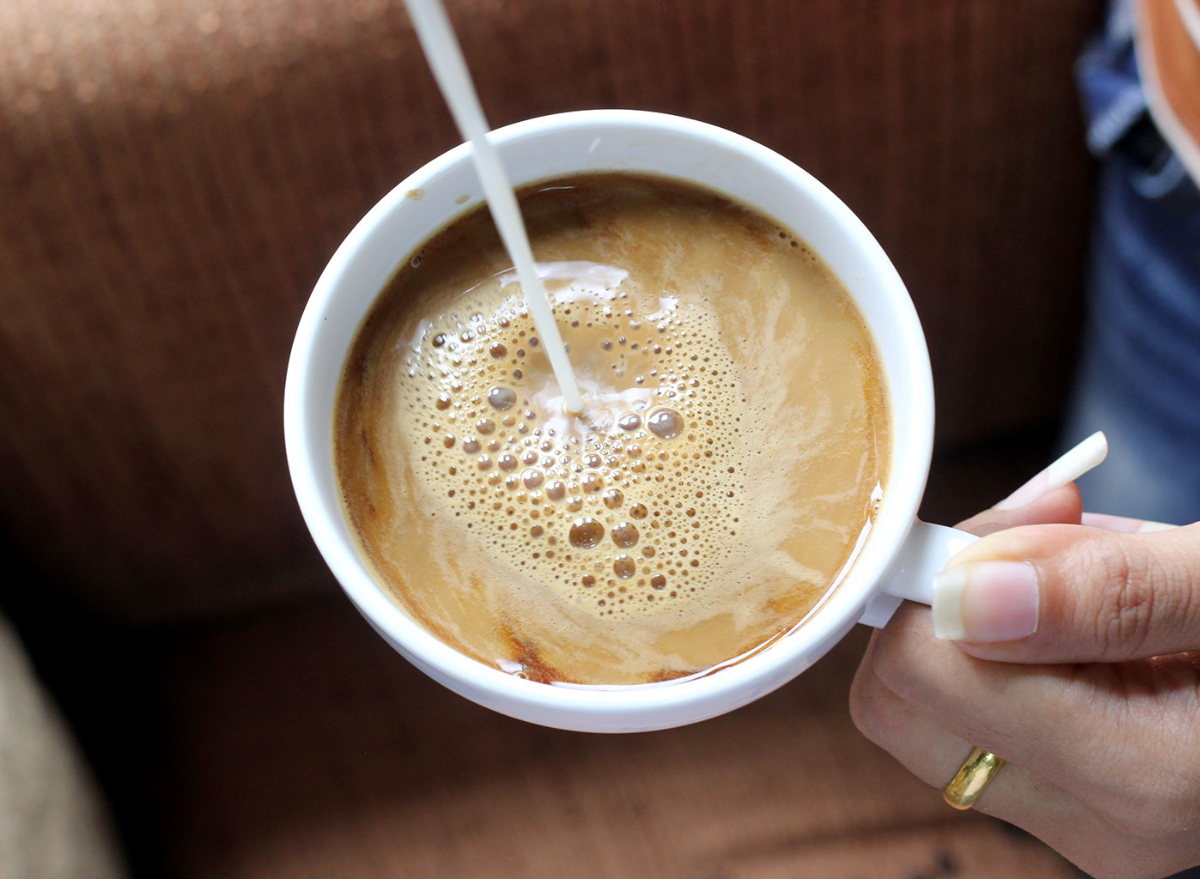
It’s safe to say that when a Monday morning rolls around, there’s nothing quite like sipping on a cup of coffee to wake you up. In fact, sometimes it feels so important that you head straight for the coffee pot before drinking water or eating breakfast.
But for those who get in the habit of grabbing coffee before your eyes are fully open, you may want to know about the possible side effects that come from drinking coffee on an empty stomach. Although there aren’t many, one major effect of drinking coffee on an empty stomach is that the caffeine will kick in much faster than if you had food in your system.
How long does it take for caffeine to kick in?
According to the Harvard School of Public Health, caffeine takes about 45 minutes to become absorbed in your body, and it “peaks” in your bloodstream at anywhere between 15 minutes and 2 hours.
However, these numbers can be altered by a number of things. For one, your sensitivity to caffeine can actually be affected by your genetic variations.
According to a report from Coffee & Health, 95% of the caffeine we metabolize is affected by something called the CYP1A2-gene, which is divided into two different variations.
Depending on your variation of this gene, you either fall under the “fast metabolizers,” who experience the effects of caffeine for a shorter amount of time, or the “slow metabolizers” who experience lingering alertness and energy from the caffeine they consume.
Another factor that alters the effects of caffeine is the food in your gut. According to Harvard Health, having food in your body, especially something high in fiber, when you consume coffee will slow down the process of when the caffeine takes effect. So drinking on an empty stomach will make you feel the effects much faster.
For some people, drinking coffee on an empty stomach is totally harmless. But for others, this speedy jolt of caffeine may trigger symptoms of anxiety or panic.
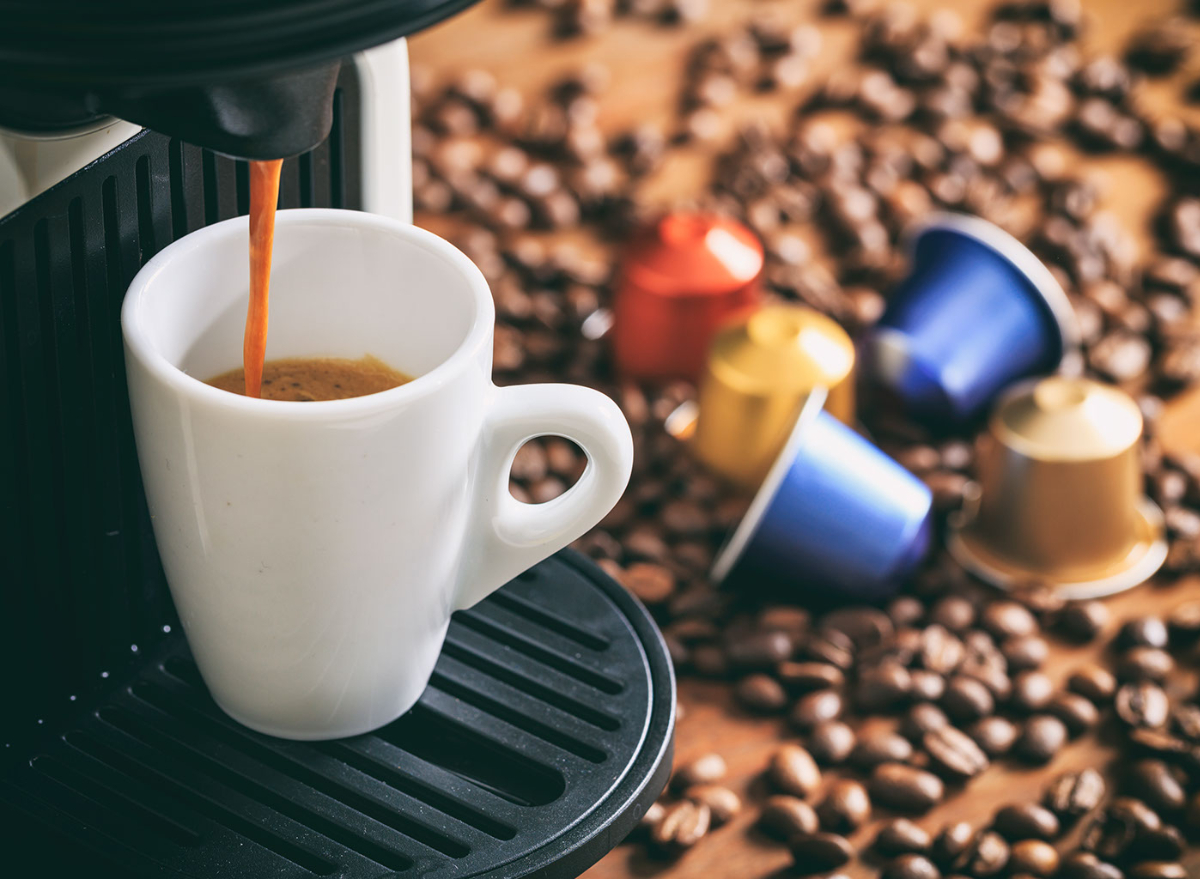
When this might have a negative effect on your body
If you experience things like restlessness, jitters, or anxiety after drinking coffee, you’re not alone. According to Frontiers in Psychiatry, there is evidence to back up a positive relationship between higher caffeine intake and anxiety symptoms for many people.
If you’re someone who feels anxious after drinking coffee or are naturally prone to anxiety or panic attacks on a regular basis, the quicker “hit” of caffeine to your bloodstream from drinking your morning cup on an empty stomach might trigger unwanted symptoms.
When it’s probably harmless
Simply put, if you don’t experience symptoms of anxiety when you drink caffeine, having it on an empty stomach might be totally fine. Because it enters your bloodstream at a quicker rate, coffee on an empty stomach can be an easy way to get a boost of energy in the morning. Just make sure you don’t skip breakfast altogether, as this can lead to other unwanted health issues.
Harvard Health also mentions that even though this boost of energy is nice, most people develop a caffeine tolerance over time that can lower the desired energy-boosting effects of your morning coffee.
For even more coffee tips, read these next:
